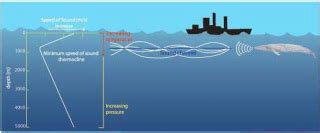Jellyfish are fascinating creatures that have been swimming in our oceans for millions of years. While they may not have a brain or a central nervous system, they are capable of detecting and responding to various stimuli, including light, touch, and even sound waves. But can jellyfish hear sound waves underwater? Let's dive into the world of jellyfish and explore their sensory capabilities.
The Anatomy of a Jellyfish
Before we delve into the question of whether jellyfish can hear sound waves, let's take a brief look at their anatomy. Jellyfish are simple multicellular organisms that consist of three main layers: the epidermis, the mesoglea, and the gastrodermis. They have a gelatinous umbrella-shaped body, with tentacles hanging from the bottom. Jellyfish also have a network of nerve cells, called a "nerve net," that allows them to respond to stimuli.
How Do Jellyfish Detect Sound Waves?
Jellyfish do not have ears or any other auditory organs that we typically associate with hearing. However, they are capable of detecting sound waves through their statocysts, which are small organs that help them maintain balance and orientation. Statocysts are made up of calcium carbonate crystals that are suspended in a fluid-filled chamber. When sound waves hit the statocysts, they cause the crystals to vibrate, which triggers a response in the jellyfish's nerve net.
Can Jellyfish Hear Sound Waves Underwater?
While jellyfish can detect sound waves, it's not the same as hearing in the classical sense. They don't have the ability to perceive sound waves as we do, with a range of frequencies and pitches. Instead, they can only detect the vibrations caused by sound waves, which are often referred to as "mechanoreception."
Research has shown that jellyfish can detect sound waves with frequencies as low as 10 Hz and as high as 100 Hz. This range is much lower than what humans can hear, which is between 20 Hz and 20,000 Hz. However, jellyfish are not just limited to detecting sound waves; they can also detect vibrations caused by other stimuli, such as movement and touch.

Why Do Jellyfish Detect Sound Waves?
So, why do jellyfish detect sound waves if they don't have the ability to hear in the classical sense? One reason is that sound waves can provide them with important information about their environment. For example, sound waves can help jellyfish detect the presence of predators or prey, which is crucial for their survival.
Additionally, sound waves can also help jellyfish navigate their surroundings. By detecting the vibrations caused by sound waves, jellyfish can determine the direction and distance of objects around them. This is especially important for jellyfish that live in murky or dark waters, where visibility is limited.
Other Ways Jellyfish Detect Their Environment
While detecting sound waves is an important way for jellyfish to sense their environment, it's not the only way they do so. Jellyfish also use other senses to navigate and find food, including:
- Vision: Jellyfish have simple eyes that can detect light and darkness. Some species of jellyfish even have more complex eyes that can detect colors and shapes.
- Chemoreception: Jellyfish can detect chemicals in the water, such as those released by prey or predators. This helps them find food and avoid danger.
- Mechanoreception: As we mentioned earlier, jellyfish can detect vibrations caused by movement and touch. This helps them navigate and find objects in their environment.
Conclusion
In conclusion, while jellyfish can't hear sound waves in the classical sense, they are capable of detecting vibrations caused by sound waves through their statocysts. This allows them to gather important information about their environment and navigate their surroundings. Jellyfish are fascinating creatures that continue to inspire scientific research and wonder.
We hope this article has helped you learn more about the amazing world of jellyfish and their sensory capabilities. Do you have any questions or comments about jellyfish or sound waves? Let us know in the comments below!
Gallery of Jellyfish






FAQs
What is the largest species of jellyfish?
+The largest species of jellyfish is the lion's mane jellyfish, which can grow up to 120 feet (36.5 meters) in length.
What is the average lifespan of a jellyfish?
+The average lifespan of a jellyfish varies depending on the species, but most jellyfish live for about 1-2 years in the wild.
Can jellyfish sting?
+Yes, jellyfish are capable of stinging, and some species can deliver painful stings to humans.
